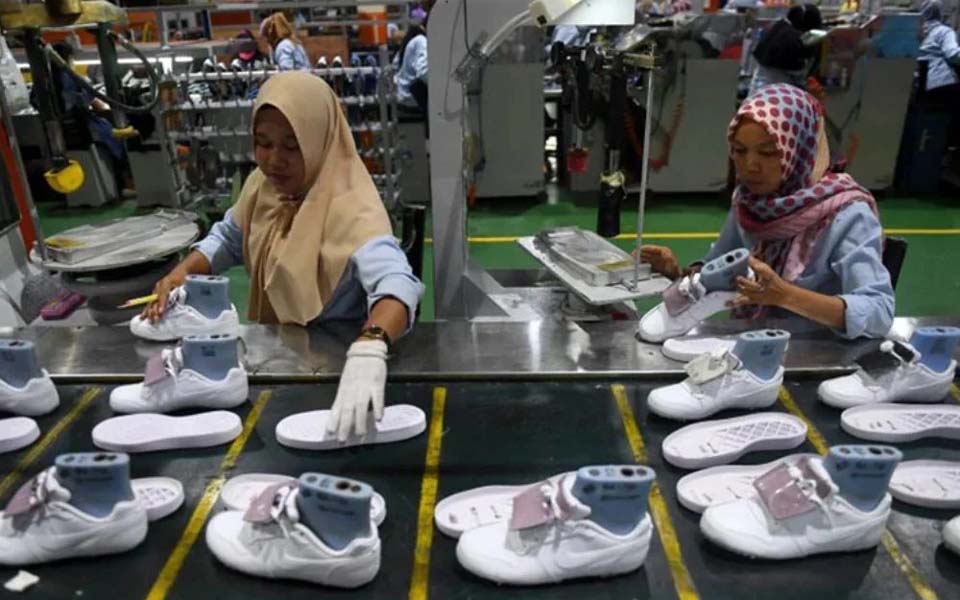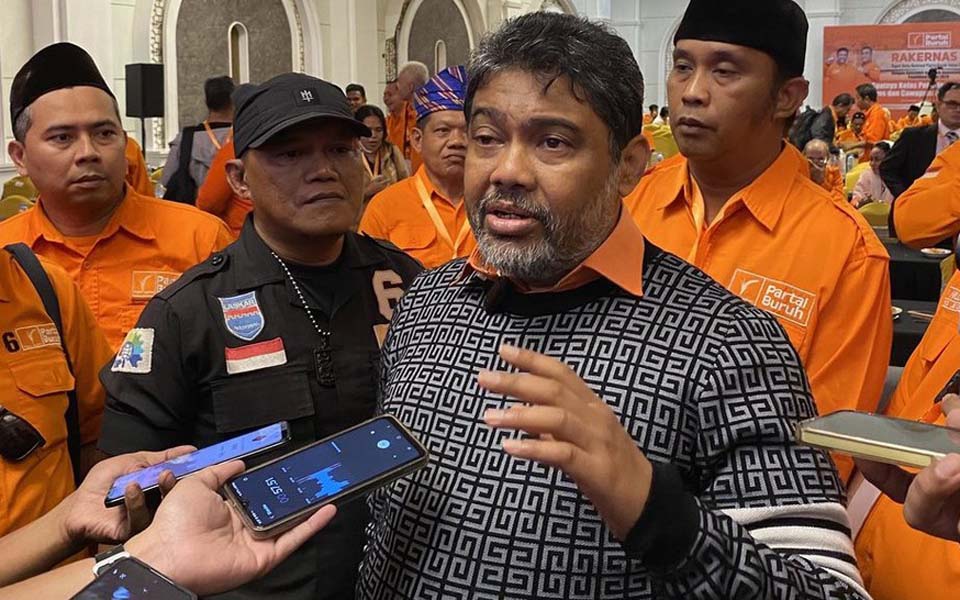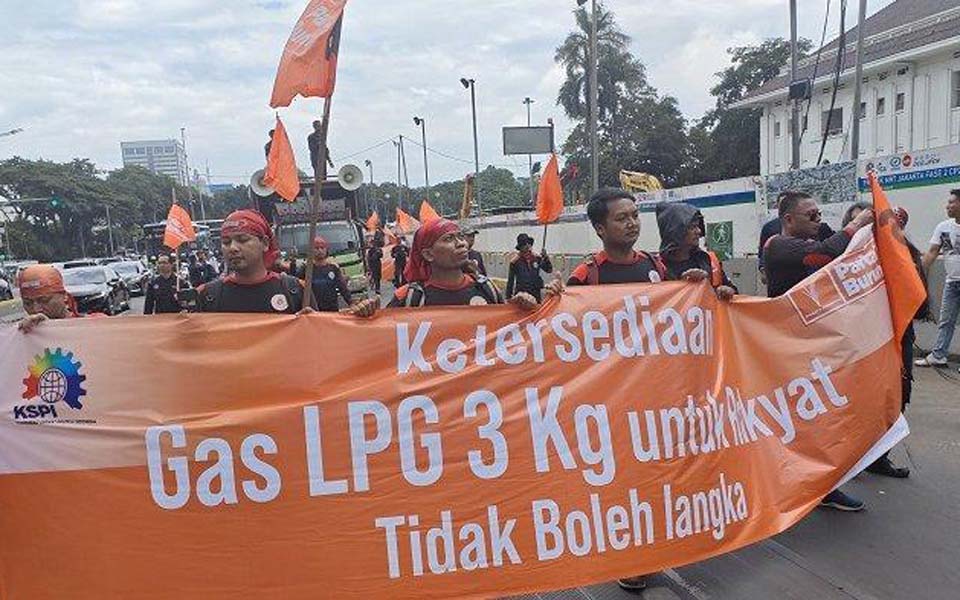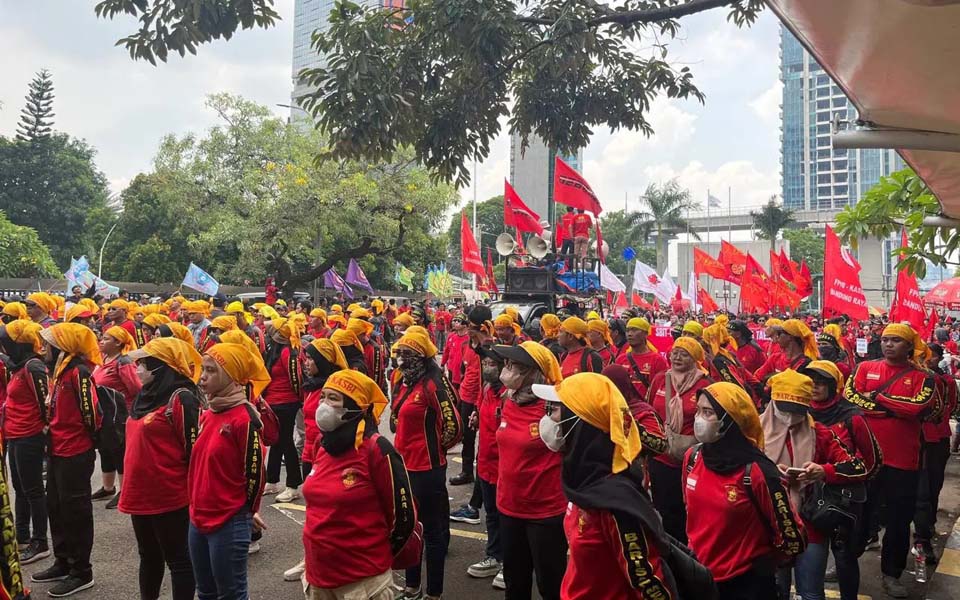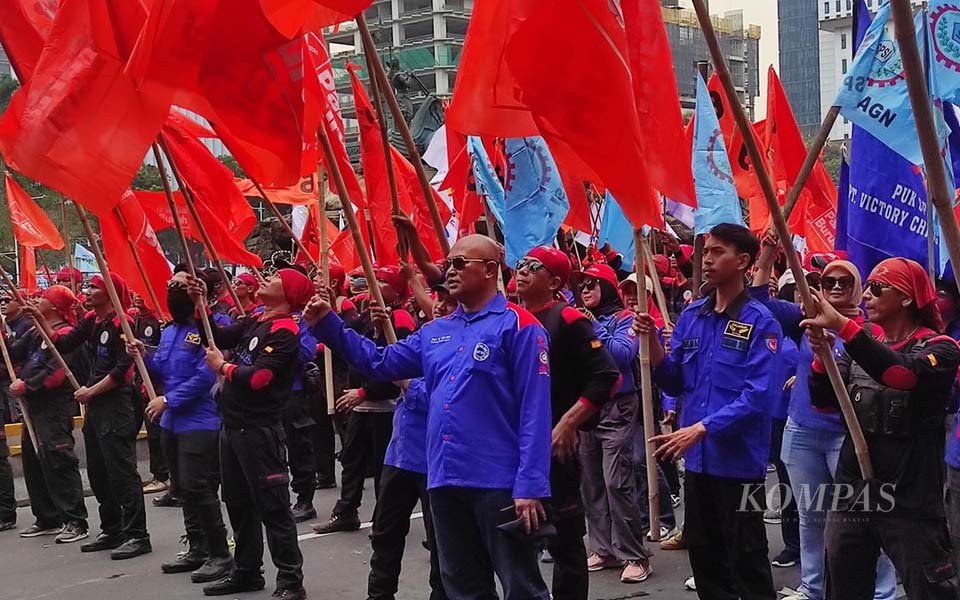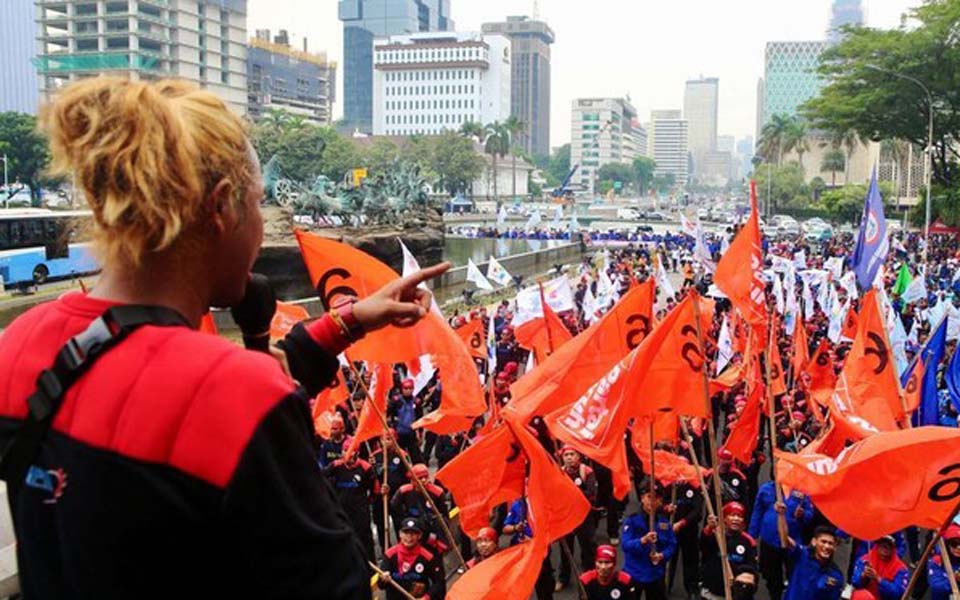Jakarta – The Confederation of Indonesian Trade Unions (KSPI) and several other labour associations have emphatically rejected the issuance of a presidential instruction (Inpres) on limiting wage rises in order to stimulate the economy and overcome a slump in the value of the rupiah.
KSPI President Said Iqbal said the Inpres will in no way improve workers’ welfare and instead has the potential of returning the country to a low-wage regime. According to Iqbal the weakening rupiah is not being caused by a drop in labour productivity or because workers are demanding high wages but because the maturation of an excessive private sector and government debt, particularly private sector debt that is out of control and hence the growing need for dollars.
Iqbal said the weakening rupiah is also being caused by a rapid decline in exports so employers are parking their money overseas. “It needs to be clarified that the weakening of the rupiah has no relationship with workers but rather with private sector debt”, he said at an event KSPI Press Conference Rejects Inpres Wage Determination at the Legal Aid Foundation (LBH) offices in Jakarta on Friday August 30.
Attending the press conference were several labour association including the All Indonesia Workers Organisation (OPSI), the National Industrial Trade Union (SPIN), the Independent Trade Union Federation (FSBI), the [Pulogadung] Industrial Zone Labour Front (FBKP), the Jakarta Provincial Labour Forum, the Association of Independent Trade Unions (GSBI), the Cross-Factory Labour Forum (FBLP) and the Joint Labour Secretariat (Sekber Buruh).
Iqbal said the issuance of the Inpres conflicted with the law, where it stipulates that regional minimum wages should be set by governors, not a minister, the Indonesian Employers Association (Apindo) or illegal employers. He added that the Inpres is simply a political machination hatched between employers and the government to return the country to a regime of low wages.
Iqbal said that President Susilo Bambang Yudhoyono (SBY) should not get caught up in low-wage policies that will reduce people’s purchasing power, which totally contradicts the president’s state of the nation speech on August 16 in which he said that purchasing power should be protected and Indonesia as a middle-class country is no longer orientated towards low-wage policies. “The government should be intelligent in overcoming this problem, don’t be influenced by employers”, he said.
Iqbal said the KSPI also rejects a statement by Coordinating Minister for the Economy Hatta Rajasa who declared that workers’ minimum wage would be set based on the results of a survey by the National Statistics Agency (BPS) and wage rises be limited to 10 percent for general industries and 5 percent for labour intensive industries. According to Iqbal Indonesian workers reject the setting of the minimum wage based on a BPS survey, which should be carried out by regional wages councils.
Iqbal said that the KSPI and other trade unions reject the Inpres as a standard to set 2014 minimum wage increases because it is part of the politics of the government and employers. The KSPI said that setting the 2014 minimum wage rise comes under the authority of governors based on Law Number 13/2013 on Labour, and ministers, let alone employers and Apindo do not have this authority.
Iqbal added that the KSPI also opposed the 2014 minimum wage increase being based on a maximum inflation rate of 10 percent because it should be based on the reasonable living cost index (KHL) and economic growth. KSPI is demanding that the number of items that make up the KHL be increased from 60 to 84. “We also call on all regional heads to take a realistic position and be able to work together”, he said.
According to Iqbal if the government sticks to the Inpres and sets minimum wage increase based only on inflation then all Indonesian workers will mobilise and hold a series of massive rallies starting on August 31 in Bekasi, West Java, in which 20,000 workers will take to the streets.
On September 3 the Jakarta Provincial Labour Forum will mobilise as many as 5,000 people, on September 5 some 30,000 workers from the Greater Jakarta area will protest at the State Palace in Jakarta, on September 10 as many as 10,000 people will mobilise across East Java, on September 11 many as 11,000 will protest in the North Sumatra provincial capital of Medan, on September 12 around 5,000 will demonstrate in Batam, Riau Islands, and on September 13 some 5,000 will mobilise in the West Java provincial capital of Bandung.
Massive protest actions will also be held the South Sumatra provincial capital Lampung, the North Sulawesi provincial capital Manado, the South Sulawesi provincial capital Makassar, Gorontalo province and Aceh, culminating in a national strikes in October and November involving 4 million workers.
[Asosiasi Buruh Tolak Penetapan Inpres tentang Pengupahan Buruh – The Daily Investor. Jumat, 30 Agustus 2013. Translated by James Balowski.]







